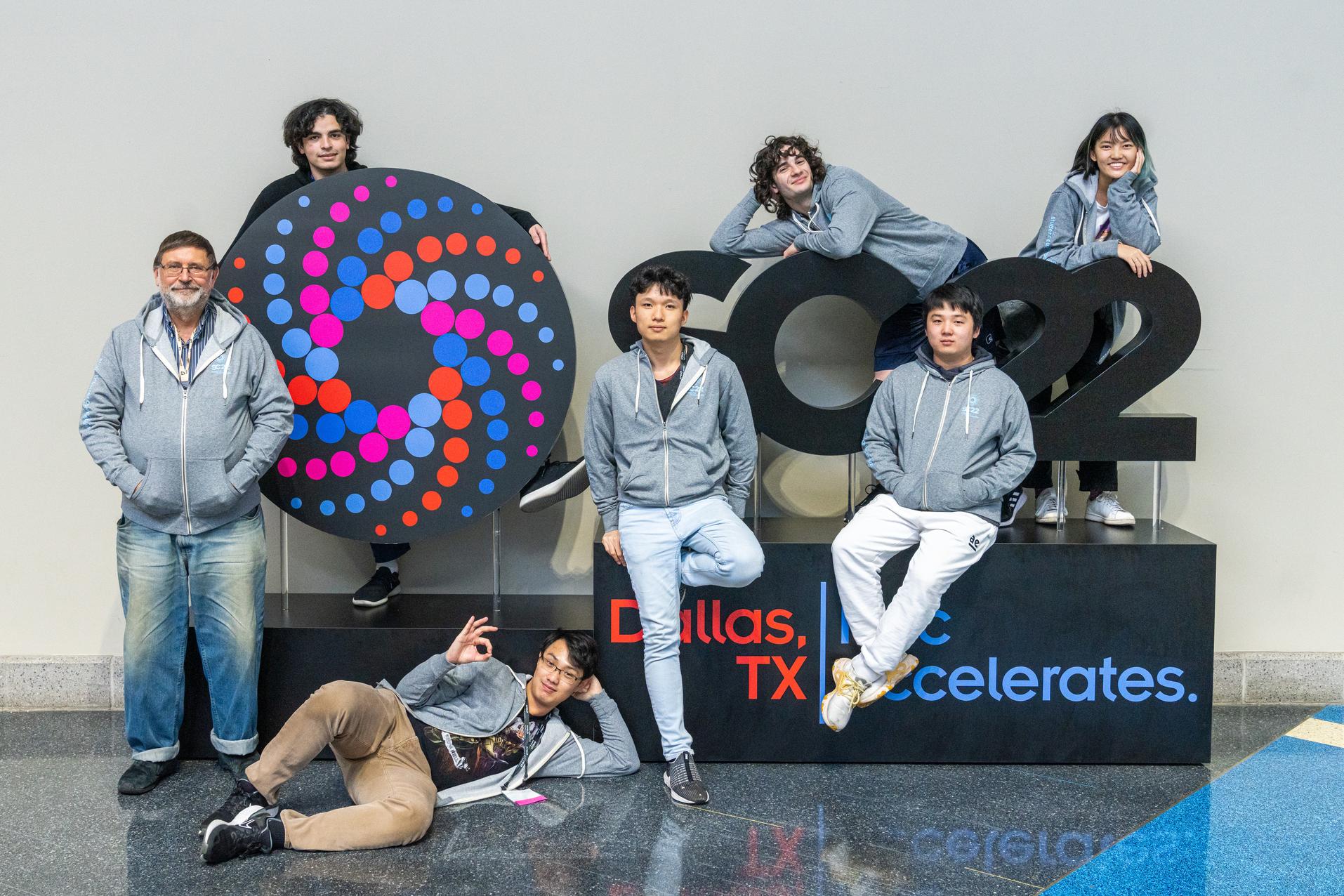
Tenth anniversary of MGHPCC-affiliated Boston Green Team sees a return to in-person cluster-racing
The Boston Green Team, an affiliate of the MGHPCC (Massachusetts Green High Performance Computing Center) and representation from MIT, Boston University, and Northeastern University, made its first appearance at the Student Cluster Competition (SCC) in 2012. This year, the team celebrated its 10th anniversary at the SCC22 competition held in Dallas, TX in November 2022. The competition, which has been held annually since 2007 in conjunction with the SC (formerly known as Supercomputing) conference, brings together students from around the world to demonstrate their skills in building, maintaining, and utilizing supercomputers.
SC22 Student Cluster Competition from MGHPCC on Vimeo. SCC teams are made up of six students, an advisor, and vendor partners. The students bring their skills and enthusiasm, the advisor provides guidance, and the vendor partners provide resources such as software and expertise. This year, the Boston Green Team was comprised of undergraduate students from Boston University, including Team Captain Po Hao Chen (CS), Carlton Knox (ECE), Yida Wang (CS), Yiran Yin (ECE), and Vance Raiti (ECE), as well as Northeastern University student Andrew Nguyen (ECE)
The competition task is designed to replicate the experience of a modern HPC center, and this year's competition consisted of delivering peak performance on a power-capped cluster of the team's own architecture choice. The competition included four benchmarks (HPL, HPCG, IO500, and MLPerf), three announced applications (PHASTA, LAMMPS, and the Reproducibility Challenge), and one Mystery App, which was SeisSol.
After weeks of preparation, the Boston Green Team's teamwork paid off with several wins. The team had the best scores in both the HPL and IO500 benchmarks and received certificates for their achievements. They also had success with the production codes PHASTA and LAMMPS, though PHASTA presented some difficulties that the team worked with AMD SMEs to overcome. In addition to their technical successes, the team also won the interview portion of the competition, which demonstrates their thorough understanding of the codes they were working with.
Overall, the Boston Green Team had a successful and rewarding experience at the SCC22 competition. The competition serves as an educational and inspiring opportunity for students to pursue careers in HPC and the team's achievements are a testament to their hard work and dedication.
Special thanks to vendor partners Supermicro and AMD, and team advisors who included Martin Herbordt from BU, Dave Kaeli from NEU, and Kurt Keville from MIT.
Story Image: (L-R) Kurt Keville (advisor), Carlton Knox (BU'23), Andrew Nguyen (NEU'24), Po Hao Chen (BU'23, Team Captain), Vance Raiti (BU'26), Yida Wang (BU'24), Yiran Yan (BU'24) photo credit: Jo Ramsey for SC22